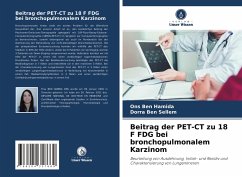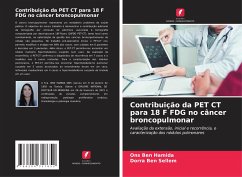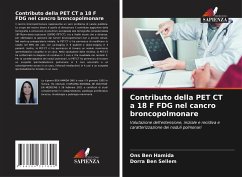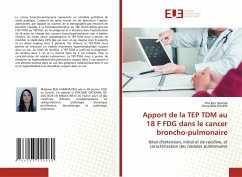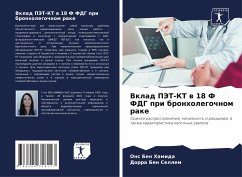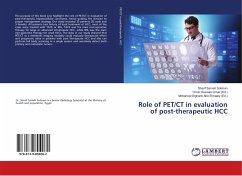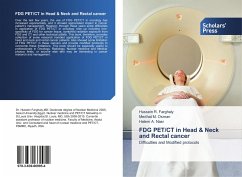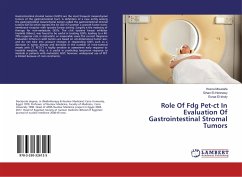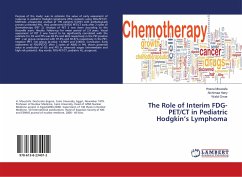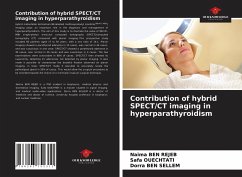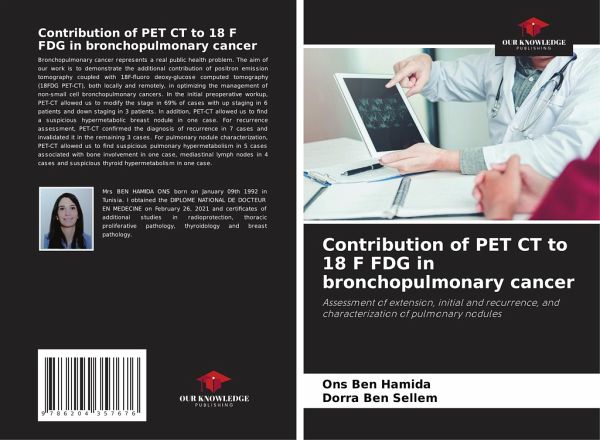
Contribution of PET CT to 18 F FDG in bronchopulmonary cancer
Assessment of extension, initial and recurrence, and characterization of pulmonary nodules
Versandkostenfrei!
Versandfertig in 6-10 Tagen
27,99 €
inkl. MwSt.

PAYBACK Punkte
14 °P sammeln!
Bronchopulmonary cancer represents a real public health problem. The aim of our work is to demonstrate the additional contribution of positron emission tomography coupled with 18F-fluoro deoxy-glucose computed tomography (18FDG PET-CT), both locally and remotely, in optimizing the management of non-small cell bronchopulmonary cancers. In the initial preoperative workup, PET-CT allowed us to modify the stage in 69% of cases with up staging in 6 patients and down staging in 3 patients. In addition, PET-CT allowed us to find a suspicious hypermetabolic breast nodule in one case. For recurrence as...
Bronchopulmonary cancer represents a real public health problem. The aim of our work is to demonstrate the additional contribution of positron emission tomography coupled with 18F-fluoro deoxy-glucose computed tomography (18FDG PET-CT), both locally and remotely, in optimizing the management of non-small cell bronchopulmonary cancers. In the initial preoperative workup, PET-CT allowed us to modify the stage in 69% of cases with up staging in 6 patients and down staging in 3 patients. In addition, PET-CT allowed us to find a suspicious hypermetabolic breast nodule in one case. For recurrence assessment, PET-CT confirmed the diagnosis of recurrence in 7 cases and invalidated it in the remaining 3 cases. For pulmonary nodule characterization, PET-CT allowed us to find suspicious pulmonary hypermetabolism in 5 cases associated with bone involvement in one case, mediastinal lymph nodes in 4 cases and suspicious thyroid hypermetabolism in one case.



